THP Emergency Departments
and Community Care Options
Your Local Emergency Departments are Very Busy
We are seeing a significant increase in the number of patients visiting our Emergency Departments, which is resulting in longer than usual wait times. If you have a health concern that is not an emergency, there are a number of community options available to care for you.
Community Health Care Options
Non-emergency options for care
Fever & Cough Resources for Parents
Managing fevers, coughs, and congestion in children and infants
Vaccines and Therapeutics
Advice for RSV, COVID and flu vaccines and early COVID‑19 therapeutics
Staying Healthy this Season
How to stay healthy and prevent spread
Visiting the Emergency Department
Locations, hours, what to bring with you, and what to know
Masking Policy
Visiting THP and Connecting with Patients
Important Bulletins
Latest updates from THP on patient care services
FAQs
Frequently asked questions from our patients and community
Donate
Support your local hospital and health care workers during COVID‑19
Safe and Respectful Space
Ensuring a safe space for patients and care teams
About vaccines
Flu
The flu (influenza) is a viral infection that is most often seen in the fall and winter. Getting the flu shot prevents pneumonia, hospitalizations, and death.
You can book an appointment to get your flu shot at:
- Family doctors offices and walk-in clinics for adults and children 6 months or older.
- Participating pharmacies for adults and children 2 years or older
- Peel Public Health clinics for adults and children 2 years or older
- Individuals without a health card can receive the flu shot from a community health centre or local pharmacy and at Peel Public Health clinics
For more information and to book an appointment, please visit Ontario.ca/Flu or peelregion.ca/flu.
COVID-19
Getting vaccinated and staying up to date with your COVID-19 vaccinations is the best way to remain protected against the most severe outcomes of COVID-19 infection including hospitalization and death.
The Ministry of Health recommends receiving vaccination with a COVID-19 XBB formulation this fall, which better protects against the new Omicron XBB variant.
Proof of Vaccination
COVID-19 vaccines are available at most pharmacies for people two years of age and older. Some family doctors’ offices also offer the COVID-19 vaccine. Please call your local pharmacy or doctor’s office ahead of your visit to confirm availability.
You can also book an appointment by calling the Provincial Vaccine Contact Centre at 1-833-943-3900 from Monday to Friday (excluding holidays) from 8:30 a.m. to 5 p.m. Visit Covid-19.Ontario.ca or Covid-19 - Peel Region for more information regarding eligibility and to book an appointment.
Antiviral treatments
Antiviral treatments for COVID-19 (including Paxlovid, Remdesivir, and Evusheld) can prevent serious illness if taken quickly after symptoms start (within the first few days). They are available in Ontario for free to anyone with a prescription. A physician, nurse practitioner or participating pharmacist can prescribe treatment if it is right for you and if you are at higher risk of serious illness. Learn more about antiviral treatments at COVID-19 testing and treatment | ontario.ca
Proof of vaccination
If you have received your COVID-19 vaccine and have misplaced your proof of vaccination, you can easily retrieve your confirmation receipt by visiting covid19.ontariohealth.ca and following the step-by-step instructions.
Videos
COVID-19 Vaccine Videos
Please note:
- The flu and COVID-19 vaccines are available to everybody aged 6 months and older in Ontario at no cost, regardless of citizenship or immigration status, even if you do not have an Ontario health card.
- It is safe and convenient to receive both the COVID-19 and annual flu shots at the same time, reducing the need for multiple visits to a doctor, nurse practitioner or local pharmacy.
- Visit Health811 online or call 811 (TTY 1-866-797-0007) for health advice and information 24 hours a day, 7 days a week.
RSV
Respiratory syncytial virus (RSV) is a major cause of lower respiratory illness, particularly among infants, young children, and older adults, affecting the lungs and airways. It may cause cold-like symptoms and is the most common cause of bronchiolitis, a common chest infection that affects infants and toddlers. Older adults and those with underlying health conditions such as asthma, chronic heart or lung disease, and those with weakened immune systems, can be at risk of severe illness with RSV.
Through the Ontario government's High-Risk Older Adults RSV Vaccine Program, adults 60 years or older residing in long-term care homes, Elder Care Lodges, and some retirement homes may be eligible for the RSV vaccine, Arexvy. If adults 60 years or older don't qualify for the free RSV vaccine, they can still purchase the vaccine with a prescription from their family doctor or other primary care provider.
For more information, please visit Ontario.ca/rsv.
Stay protected this fall and winter
With cooler weather upon us and as people move indoors, the risk of transmitting viruses like the flu, COVID-19 or respiratory syncytial virus (RSV) increases.
To keep yourself protected:
- Get vaccinated and stay up to date with vaccinations
- Wash your hands often
- Cough or sneeze into your elbow
- Avoid touching your face
- Clean shared surfaces and items often
- Stay home if you’re sick
Vaccines help lower the risk of infection, work to reduce severe outcomes if infected, and aid your body's natural defenses to develop protection against a disease.
